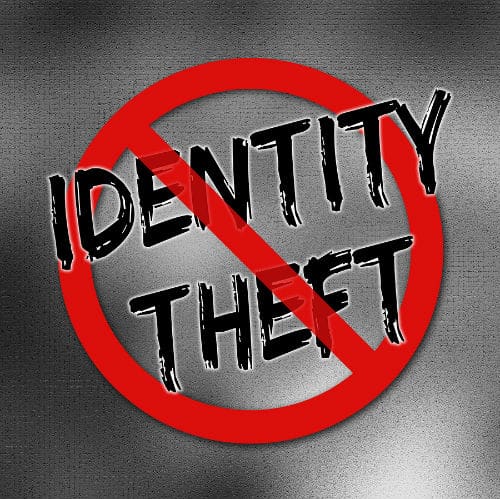A Credit Freeze is a powerful, free tool that blocks access to your credit report, making it much harder for identity thieves to open new accounts in your name. You must place a freeze separately with Equifax, Experian, and TransUnion to be fully protected. In this article you’ll learn what a credit freeze does, how to set one up and lift it, and when a freeze is the right choice.
Key Takeaways
-
A credit freeze restricts most lenders from viewing your credit file, preventing new-account fraud.
-
Freezes do not affect your credit score or existing accounts.
-
You must contact Equifax, Experian, and TransUnion separately to freeze all three files.
-
Freezes are free nationwide and must be placed/lifted quickly when requested online or by phone. (FTC guidance).
-
Use a temporary lift (thaw) when applying for new credit, loans, or services.
-
Freezes can protect minors and incapacitated adults with proper documentation.
-
Fraud alerts are less restrictive; locks are vendor services — know the difference.
What Is a Credit Freeze?
A Credit Freeze (also called a security freeze) blocks most potential creditors from accessing your credit report. Without that access, lenders usually won’t approve new credit in your name because they can’t evaluate your creditworthiness. A freeze applies to each of the three nationwide credit reporting agencies, so you need to freeze all three to block new-account openings everywhere.
Official definition and rules
The Federal Trade Commission (FTC) explains that credit freezes are free to place and lift, and credit bureaus must implement online or phone requests within one business day and lift them within one hour. The federal resource IdentityTheft.gov also recommends freezes as an effective defense for people worried about identity theft.
Why Does a Credit Freeze Matter?
A Credit Freeze stops the most common route identity thieves use: opening new credit accounts in your name. Because new creditors typically pull credit reports before approving loans, a freeze prevents them from seeing your file and therefore from granting new accounts.
Who benefits most?
People who aren’t planning to apply for new credit soon — retirees, people on fixed incomes, victims of identity theft, and guardians of minors — often get the most protection from a freeze. Freezing a minor’s report is a recommended step if you suspect someone may try to use the child’s identity.
How Do You Place or Lift a Credit Freeze?
Step-by-step: Place a credit freeze
-
Collect personal documents — Social Security number, date of birth, current address, and ID.
-
Contact each bureau — Equifax, Experian, TransUnion (online or by phone). Use the bureau websites to start a freeze.
-
Get your PIN or password — The bureau will give a PIN, password, or instructions to manage the freeze later. Store it securely.
-
Confirm the freeze — You should receive written confirmation and instructions.
According to the FTC, online or phone requests must be placed within one business day and lifted within one hour when requested. (FTC consumer guidance.)
How to lift (temporarily or permanently)
-
Temporary lift (thaw): Provide the bureau with the PIN or password and specify the time window or the creditor name.
-
Permanent removal: Request permanent removal via the bureau’s website or phone and verify identity.
-
Processing times: Online and phone requests are fast (often within an hour); mailed requests take longer.
Can You Compare Freeze, Fraud Alert, and Lock?
Quick comparison table
| Feature | Credit Freeze | Fraud Alert | Credit Lock |
|---|---|---|---|
| Blocks new creditors from accessing file | Yes | No (requests verification) | Yes (vendor service) |
| Requires contact with all three bureaus | Yes | No (place with one bureau) | Yes (one provider may not cover all) |
| Cost | Free (federal law) | Free | Often paid (varies) |
| Best for | Strong protection, not seeking new credit | Quick alert if you suspect theft | Convenience, may include monitoring |
| Affects credit score | No | No | No |
When to choose each
-
Choose a credit freeze if you want the strongest, no-cost barrier to new-account fraud.
-
Use a fraud alert if you plan to apply for credit soon but want extra verification steps.
-
Consider a credit lock for convenience if you prefer one-click locking via a company app — but read the small print and coverage.
Examples and Scenarios
Example 1: Identity theft prevention
You find your Social Security number on a data-breach list. Placing a credit freeze with all three bureaus immediately prevents criminals from opening new lines of credit.
Example 2: Applying for a mortgage
If you plan to apply for a mortgage, temporarily lift the credit freeze at the bureau your lender uses, or provide consent for that lender to access your reports for a defined time window.
Example 3: Protecting a child
A parent can place a freeze on a child under age 16. The freeze lasts until the child reaches adulthood or the guardian takes action to remove it.
What Mistakes Should You Avoid With a Credit Freeze?
-
Not freezing all three bureaus. A freeze must be placed with Equifax, Experian, and TransUnion separately.
-
Losing your PIN/password. Without it you may face delays when lifting the freeze.
-
Forgetting to temporarily lift for valid credit needs. Plan ahead if you expect to apply for loans or utilities.
-
Assuming the freeze stops all fraud. Freezes stop new-account openings but don’t stop account takeover on existing accounts or misuse of existing credit cards.
-
Relying on locks without reading terms. Locks from companies may expire or not apply universally.
What Are the Long-Term Benefits of Using a Credit Freeze?
A Credit Freeze offers long-term, low-effort protection against a common type of identity theft. Because it does not affect your credit score and is free, it’s a low-cost way to reduce risk. For families, freezing minors’ files adds a layer of safety that can last until the minor is old enough to manage credit themselves.
Expert Insight (Authoritative Source)
Federal consumer protection guidance from the FTC and IdentityTheft.gov confirms that credit freezes are free to place and lift nationwide, and that bureaus must process online or phone freeze requests quickly (usually within one business day). See the FTC’s Consumer Advice on credit freezes and fraud alerts for full details.
(References: Federal Trade Commission; IdentityTheft.gov.)
FAQs
Is it a good idea to freeze your credit?
Yes — a credit freeze is a strong, free defense against new-account fraud, especially if you don’t plan to open new credit soon.
How do I put a freeze on all three credit bureaus?
Contact Equifax, Experian, and TransUnion individually via their websites or phone numbers and follow their freeze procedures; keep each bureau’s PIN or password.
Can someone use my SSN if my credit is frozen?
A freeze makes it harder to open new credit with your SSN, but it does not stop other fraud types (like tax refund fraud or SIM swapping).
Can your identity be stolen if your credit is frozen?
Yes — a freeze helps block new credit but does not prevent all identity theft (fraud on existing accounts, medical identity theft, or misuse of personal info can still occur).
Credit freeze or fraud alert — which should I use?
Use a credit freeze for maximum protection if you won’t need new credit soon; use a fraud alert if you expect to apply for credit but want businesses to verify your identity.











Comments are closed.